SAID AND DONE
OCTOBER 2021
MIT SCHOOL OF HUMANITIES, ARTS, AND SOCIAL SCIENCES
QUOTABLE
"This year's Nobel prize celebrates the 'credibility revolution' that has transformed economics since the 1990s. Today much notable new work is based on analysis of real-world data."
— The Economist
NOBEL PRIZE IN ECONOMIC SCIENCE
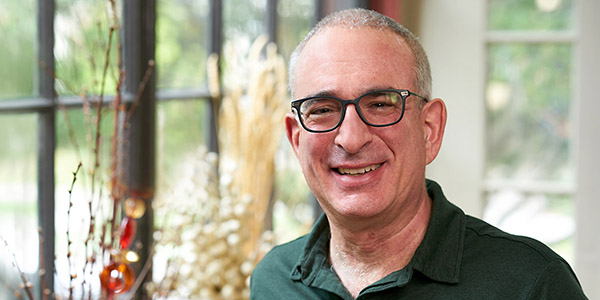
Joshua Angrist, Ford International Professor of Economics at MIT; photo by Lillie Paquette
ECONOMICS
MIT economist Joshua Angrist shares the 2021 Nobel Prize in Economic Science
Cited for work building the foundations of “natural experiments” in economic research, Angrist, the Ford International Professor of Economics at MIT, and Guido Imbens, Professor of Economics at Stanford University, received the award for their “methodological contributions to the analysis of causal relationships,” alongside David Card for his work on labor economics.
Story: A revolution in economics | Story at MIT News | Angrist's Nobel telephone interview
STRENGTHENING DEMOCRACY

MIT ELECTION DATA AND SCIENCE LAB
Administering U.S. elections in a hyper-partisan era | Charles Stewart III
"The 2020 election showed the resilience of the fact-based part of the election administration system — election administrators, judges, and research institutions (including universities) — that have stood for the rule of law in the face of illiberal attacks on election administration. Opponents of fair elections recognize this and have attacked all parts of this fact-based bulwark." What can Americans do now to protect our democracy?
Story by MIT SHASS Communications | Related: Lessons Learned from the 2020 Election
WELCOME TO OUR NEW FACULTY
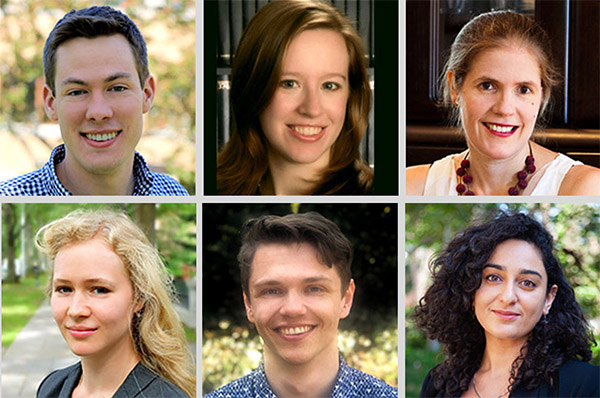
MIT SHASS
Meet the New Faculty
Top Row, L to R: Ian Ball, Assistant Professor of Economics; Sam Berstler, Assistant Professor of Philosophy; Wiebke Denecke, Professor of Literature. Lower Row, L to R: Mariya Grinberg. Assistant Professor of Political Science; Christian Wolf, Assistant Professor of Economics; Sulafa Zidani, Assistant Professor of Comparative Media Studies. For more information and biographical notes:
Visit the New Faculty Gallery
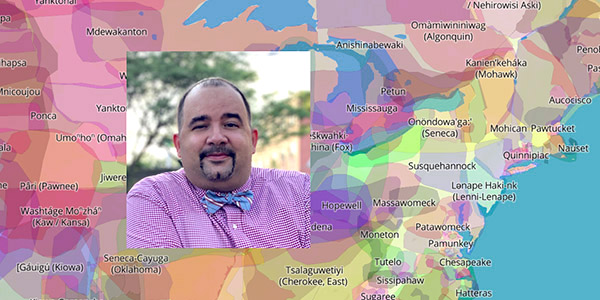
Dr. David Shane Lowry, Distinguished Fellow in Native American Studies; Detail, Indigenous territories map, via Native Land Digital
Meet David Shane Lowry '03 ('07) | Distinguished Fellow in Native American Studies
Dr. Lowry, SB ’03 ('07) in Anthropology, has returned to MIT as a Distinguished Fellow in Native American Studies, based in the MIT History section. In this role, Lowry, a member of the Lumbee Tribe, is leading a conversation about MIT and the Indigenous peoples of the U.S. Learn more about the conversation and 21H.283, Lowry's history class for MIT undergrads.
Lowry’s webpage | Commentary by President Reif: Facing a Difficult History
GOVERNANCE AND POLICY
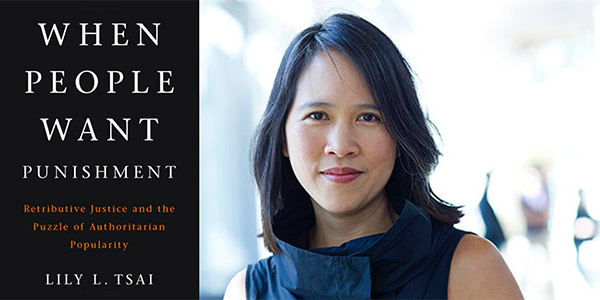
POLITICAL SCIENCE
Punishment for the people | Lily Tsai
Tsai’s new book explains how “retributive justice,” the high-profile punishment of some in society, helps authoritarians solidify public support. Tsai, the Ford Professor of Political Science and chair of the MIT faculty, seeks to shift our understanding of how authoritarians prosper — an especially urgent question while many have gained traction around the globe.
Story by Peter Dizikes at MIT News
POLITICAL SCIENCE
New views of autocracy emerge from historic archives | Emilia Simison
PhD student Simison finds that despotic regimes vary, and the move to democracy doesn’t necessarily guarantee policy change.
Story by Political Science
CENTER FOR INTERNATIONAL STUDIES
Starr Forum: On the future of Afghanistan
Foreign-policy experts survey the uncertainties facing Afghanistan as it returns to Taliban rule. “The West has deep ethical choices to make here about its relationship," says Professor Barry Posen, not just with the Taliban, but the Afghan people."
Story + Video | Related: Steven Simon on 9/11, 20 years later
MIT ELECTION LAB
Explainer: How election return reporting works
Crisp, clear sections and info graphics on: Tabulating votes; Accumulating votes locally; Reporting vote to the state; Reporting results to the public; Canvassing and certifying results; Reporting speed; and The Blue Shift. There is also a list of suggested reading.
Knowledge is power: Dive in! | Related: The Virus and the Vote
SOLVING CLIMATE
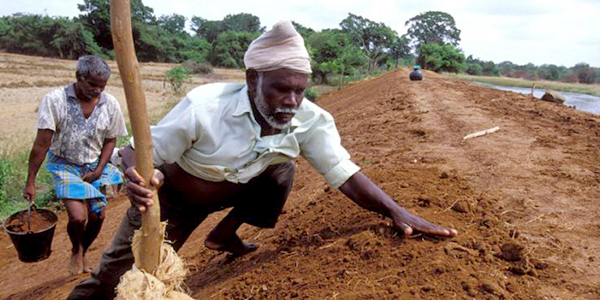
Repairing an embankment to protect against floods in Sri Lanka; photo Dominic Sansoni, World Bank
ABDUL LATIF JAMEEL POVERTY ACTION LAB
At the nexus of climate and poverty
The JPAL team has published a big picture analysis on the recent landmark IPCC report on climate change. At the nexus of climate change and poverty two actions stand out: Act urgently to reduce greenhouse gas emissions, and build and increase resilience in communities most harmed by climate change.
Analysis and Commentary
MIT CLIMATE NUCLEUS COMMITTEE
Anthropologist Stefan Helmreich appointed to the Climate Nucleus
Helmreich, Elting E. Morison Professor of Anthropology, will serve as a member of a small group tasked with managing and implementing MIT's new Fast Forward Climate plan. Learn more:
Story at MIT News | Fast Forward: MIT's Climate Action Plan for the Decade
MIT SHASS
Solving Climate | Humanistic Perspectives from MIT
An ongoing series addressing the economic, political, and cultural dimensions of climate change
Series
STUDENT VOICES AND RESEARCH
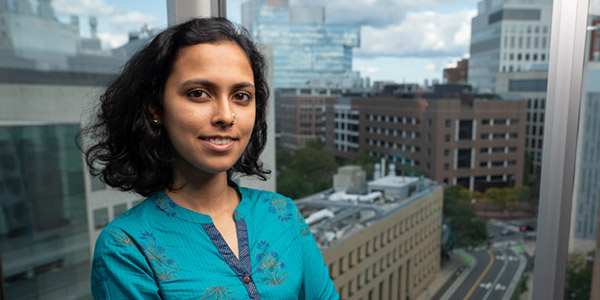
Rajul Gandhi '23; photo by Bryce Vickmark
LINGUISTICS + COMPUTER SCIENCE
At the crossroads of language, technology, and empathy | Rajul Gandhi '22
With a double major in linguistics and computer science, senior Rujul Gandhi works to surmount language and cultural barriers, globally and on campus.
Story at MIT News
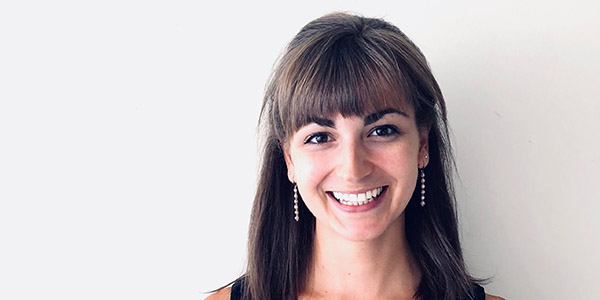
Sophia Gibert, PhD student in MIT Philosophy; photo courtesy of Gibert
PHILOSOPHY
Ethics in action | Sophia Gibert, PhD student in Philosophy
"I’m particularly interested in the ethics of influencing other people, because in health care — whether you are a clinician or a policy maker, or a clinical researcher — there is always the issue of paternalism (i.e., substituting your own judgment about what’s best for someone else’s)."
Story by MIT SHASS Communications
MATH + COMPUTER SCIENCE + PHILOSOPHY OF LANGUAGE
The language of change: Ryan Conti '23
Preparing for a career advancing the science and policy of climate issues, Conti focuses on math, computer science, and the philosophy of language, which matters to Conti as a source of both ethical thinking and convincing arguments on behalf of climate policy. As a citizen of the Chickasaw Nation, Conti is also pursuing another linguistic passion: he says helping revitalize the endangered Chickasaw language “could be one of the most important things I do with my life.”
Story by SHASS Communications
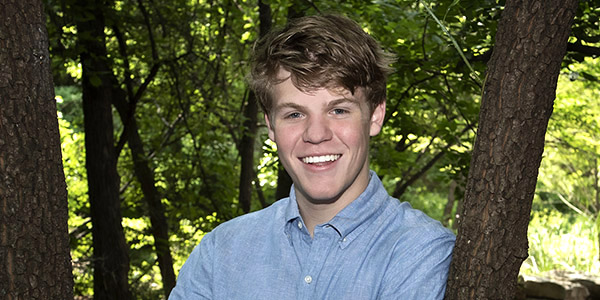
Ryan Conti '23; photo courtesy of the Conti family
EXPLORE
Follow us
Subscribe to Said and Done
10 issues a year
Media + Awards Digest
Current coverage
Making a Better World
Browse 12 Research Sectors
Making a Just Society
Explore the Resources
Solving Climate
Browse the Commentaries
Perspectives for the Pandemic
Explore the Series
Ethics, Computing, and AI: Perspectives from MIT
Full Series
Computing and AI: Humanistic Perspectives from MIT
Full Series
MIT Climate website
A major source of research, innovation, and discussion
Join us!
SHASS on MIT News
Research and Features
MIT Campaign for a Better World
Story | Join Us
Published by SHASS Communications
Office of the Dean, MIT School of Humanities, Arts, and Social Sciences
Editor and Designer: Emily Hiestand
Publication Associate: Alison Lanier
Published 21 October 2021





